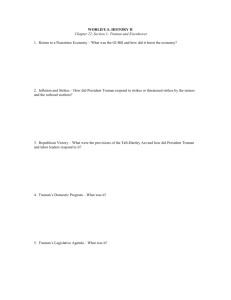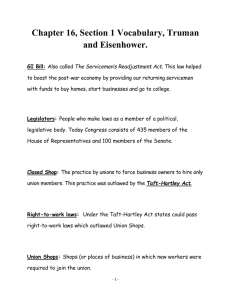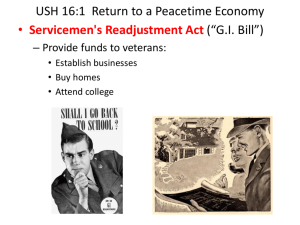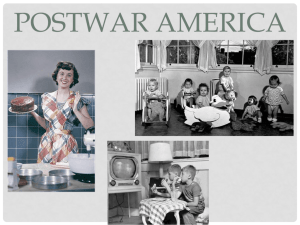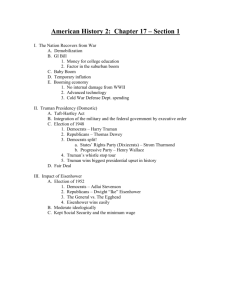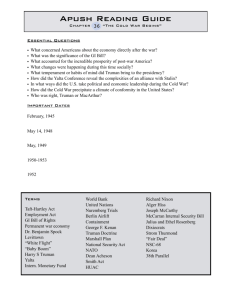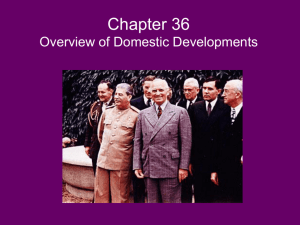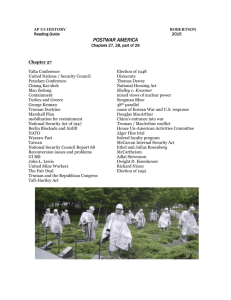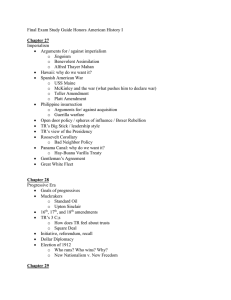Truman and Eisenhower on the Homefront
advertisement
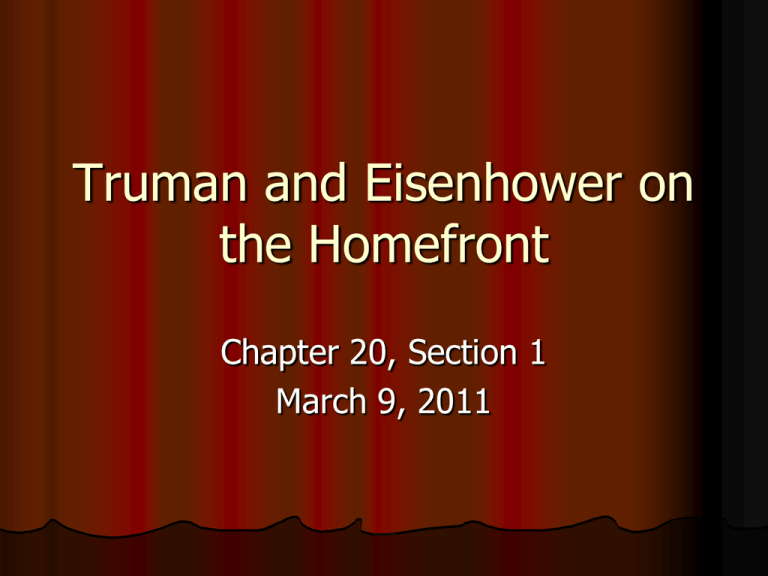
Truman and Eisenhower on the Homefront Chapter 20, Section 1 March 9, 2011 The GI Bill As the war came to an end, the U.S. looks for ways to help its servicemen returning home. The GI BILL (aka the SERVICEMEN’S READJUSTMENT ACT) provides low interest loans to veterans – helps them buy houses, start businesses, and go to college. Taft-Hartley Act Although the economy is getting better, there are still problems. Strikes and inflation happen after the war. The TAFT-HARTLEY ACT sets unions back by getting rid of : Closed shops (businesses that only hired union workers) Truman VETOED it, but a Republican congress overrides the veto. Seen as a response to the Wagner Act Truman’s Domestic Agenda President Truman wanted to do a number of things to help the country when he became president. These included: Expansion of social security Raising the minimum wage National health insurance A LARGE CIVIL RIGHTS BILL Congress won’t pass most of these things – Truman calls them the “DO-NOTHING CONGRESS” ELECTION OF 1948 Many Southerners got angry when Truman proposed a Civil Rights Bill. In the Election of 1948, Southern Democrats start the States’ Rights (or DIXIECRAT) party. Sen. STROM THURMOND of SC leads the party. Henry Wallace runs on the Progressive Party ticket. Although they wouldn’t win, this looked as if it would split the vote and let the Republican win. Truman defeats THOMAS DEWEY narrowly to win the election. FAIR DEAL Truman coins his ideas as the FAIR DEAL. Congress does raise the minimum wage and expands Social Security. They do not provide national health insurance or pass Truman’s civil rights legislation. The “Checkers” Speech In the Election of 1952, Eisenhower is almost derailed when his VP candidate, Richard Nixon, is accused of taking illegal gifts. Just before Ike drops him from the ticket, Nixon goes on TV and says he had never taken any gifts except for a puppy named “Checkers.” The American people think puppies are really cute, so they let him slide. Nixon and “Checkers” http://www.americanrhetoric.com/speeches/richardnixoncheckers.html “Dynamic Conservatism” Although Eisenhower was a conservative, he enacted many activist policies. This blending of the two ideas becomes known as “dynamic conservatism.” Ike calls for the FEDERAL HIGHWAY ACT. This helps construct 40,000 miles of interstate highway which cost $25 billion. Eisenhower wins again easily in 1956.
